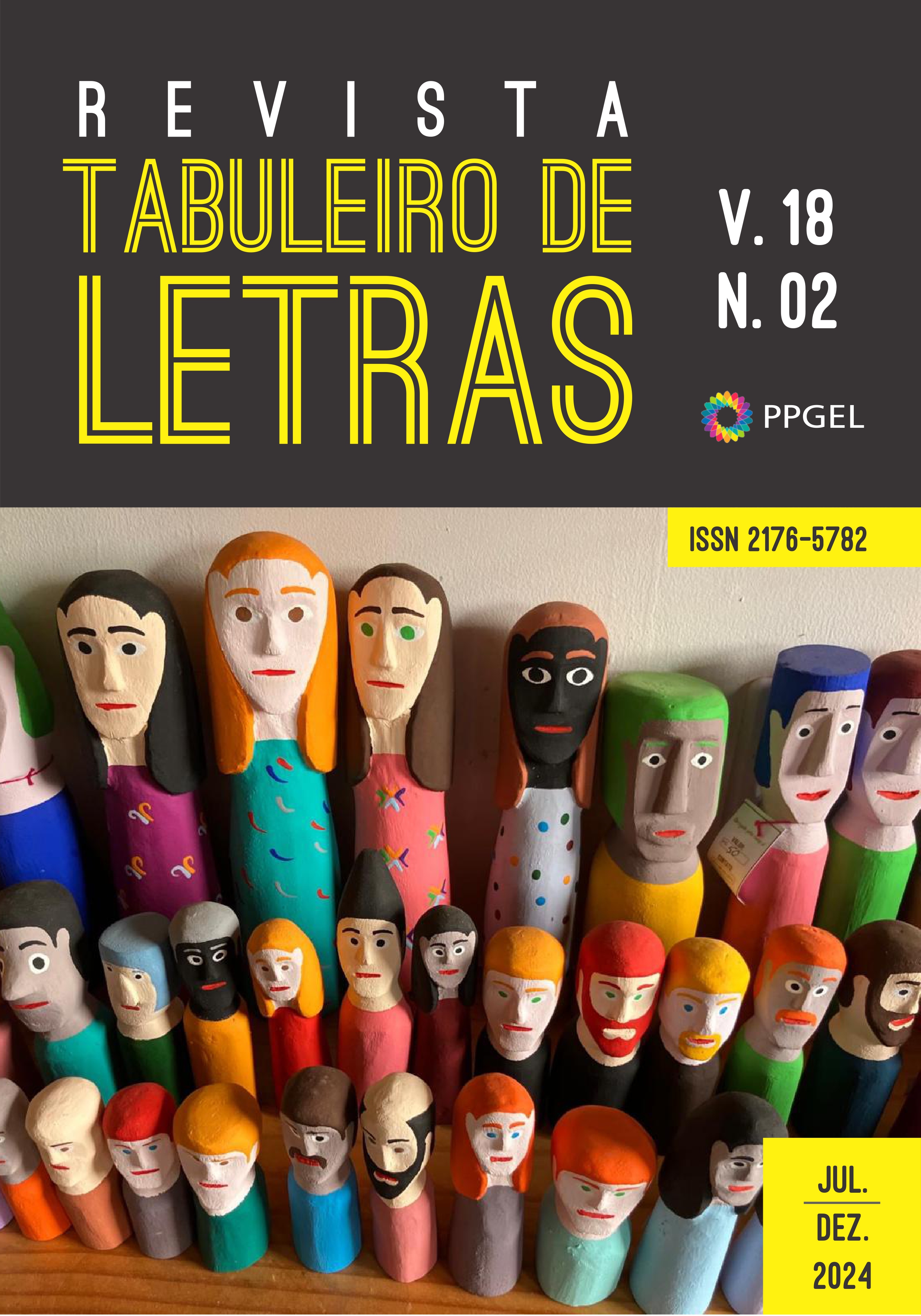Linguistic prejudice in the classroom
reflections on students’ perception and the impact of the pedagogical approach
DOI:
https://doi.org/10.35499/tl.v18i2.21609Abstract
The main objective of this study was to understand the key factors contributing to the continuity/persistence of linguistic prejudice in Portuguese language classes at a public school in the municipality of Imperatriz/MA. To better support our investigation, we drew on the sociolinguistic studies of Bagno (2007), Bortoni-Ricardo (2005), and Possenti (1996), as well as literacy studies by Soares (2017). Our methodological approach is predominantly qualitative, as recommended by Gil (2002) and Goldenberg (2013). We conducted field observations with ethnographic nuances and administered questionnaires to students. We concluded data collection through discussion groups. Ethical aspects of research involving human subjects were adhered to, following Resolution No. 466/12 of the National Health Council, Ministry of Health, as well as other complementary resolutions. The main findings show that linguistic prejudice persists due to a lack of understanding of linguistic variation and the use of technicist pedagogical practices. There is also strong family influence rejecting more reflective approaches. Moreover, the punitive stance of the teacher legitimizes the reproduction of prejudice by students.
Downloads
References
BAGNO, M. Preconceito linguístico: o que é, como se faz. Ed. Loyola, São Paulo, 49ª ed. jun. 2007.
BORTONI-RICARDO, S. M. Heterogeneidade lingüística e o ensino da língua: o paradoxo da escola. In: BORTONI-RICARDO, Stella Maris. Nos cheguemu na escola, e agora? Sociolinguística e educação. São Paulo: Parábola, 2005. p. 13-17.
BRASIL. Ministério da Educação. Base Nacional Comum Curricular. Brasília, DF: Ministério da Educação, 2018. Disponível em: http://basenacionalcomum.mec.gov.br/images/BNCC_EI_EF_110518_versaofinal_site.pdf. Acesso em: 26 ago. 2024.
BRASIL. Ministério da Educação. Guia PNLD 2020: Língua Portuguesa. Brasília: Ministério da Educação, Secretaria de Educação Básica, 2020. Disponível em: https://pnld.nees.ufal.br/assets-pnld/guias/Guia_pnld_2020_pnld2020-lingua-portuguesa.pdf. Acesso em: 26 ago. 2024.
GIL, A. C. Como elaborar projetos de pesquisa. 4. ed. São Paulo: Atlas, 2002.
GOLDENBERG, M. A arte de pesquisar: como fazer pesquisa qualitativa em Ciências Sociais. 13. ed. Rio de Janeiro: Record, 2013.
GONÇALVES, E. P. Conversas sobre iniciação a pesquisa científica. Campinas: Alinea, 2001. 80 p.
IDEB. Índice de Desenvolvimento da Educação Básica. 2022. Disponível em: https://qedu.org.br/escola/21094225-cem-madalena-de-canossa/. Acesso em: 09 ago. 2024.
LABOV, W. Padrões Sociolinguísticos. Tradução de Marcos Bagno, Maria Marta
Pereira Scherre, Caroline Rodrigues Cardoso. São Paulo: Parábola, 2008.
LIMA, M. C.; SILVA, M. da G. T. Da fala para a escrita: o uso de regras não padrão por alunos do ensino fundamental. Philólogus, Rio de Janeiro, v. 28, n. 84, p. 509-525, 05 jan. 2022. Disponível em: https://www.revistaphilologus.org.br/index.php/rph/article/view/1337. Acesso em: 09 ago. 2024.
LIMA, M. C.; SILVA, M. da G. T. Reflexões sobre o uso de regras não-padrão decorrente da diferença dialetal, na escrita de alunos do 8º ano de uma escola pública de ensino fundamental. Philólogus, Rio de Janeiro, v. 26, n. 78, p. 3156-3173, 05 jan. 2020. Disponível em: https://www.revistaphilologus.org.br/index.php/rph/article/view/186. Acesso em: 09 ago. 2024.
POSSENTI, S. Por que (não) ensinar gramática na escola. Campinas, SP: Mercado das
Letras, 1996.
REIS, P. C.; MACHADO, D. P.; BARBOSA, S. C. D. A. A sociolinguística e o ensino de língua materna. In: I Seminário Internacional De Representações Sociais, Subjetividade E Educação - SIRSSE, 10., 2011, Curitiba. Anais do X Congresso Nacional de Educação - EDUCERE. Curitiba: PUCPR, 2011. p. 6440-6450.
ROCHA, B. da S. D.; SILVA, M. da G. T. Quem a regra prega: ocorrências de regras não padrões na fala. Philólogus, Rio de Janeiro, v. 28, n. 74, p. 1208-1224, 05 jan. 2022. Disponível em: https://www.revistaphilologus.org.br/index.php/rph/article/view/1392/1456. Acesso em: 09 ago. 2024.
SOARES, M. Linguagem e escola: uma perspectiva social. São Paulo: Contexto, 2017.
Downloads
Published
How to Cite
Issue
Section
License
Autor(es) conservam os direitos de autor e concedem à Revista o direito de primeira publicação, com o trabalho simultaneamente licenciado sob a Licença Creative Commons Attribution que permite a partilha do trabalho com reconhecimento da autoria e publicação inicial nesta Revista.

















